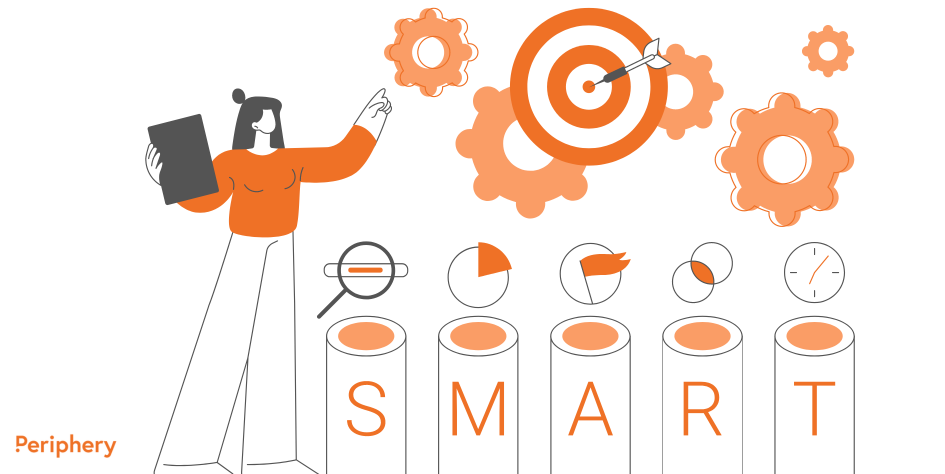In this blog post, we address the challenge of managing multiple projects with their own deadlines and tasks. We provide a compelling list of the top 10 time management tips for project management, offering powerful strategies to boost productivity and ensure project success. Consider these tips as your secret arsenal, empowering you and your team to navigate project timelines with confidence and efficiency.
Discover a curated collection of time management strategies tailor-made for project managers. These strategies will transform your approach, optimize productivity, and elevate your business’s overall performance. Embrace these strategies to become a wizard of time management in your projects and achieve exceptional results in your endeavors.
What is Time Management?
Time management is a critical skill that plays a vital role in the success of any project. It involves effectively prioritizing tasks based on their importance and urgency, ensuring that urgent deadlines are met, and efficiently working towards achieving goals. By managing time effectively, individuals can optimize productivity, minimize stress, and increase the likelihood of project success. It requires careful planning, organization, and the ability to make informed decisions about how to allocate time and resources. With proper time management, individuals can stay focused, meet deadlines, and achieve their desired outcomes in a structured and efficient manner.
Top 10 Time Management Tips for Project Management
Prioritize Your Tasks
The crux of effective time management is prioritizing your tasks, focusing primarily on MCITs (Most Crucial and Important Tasks). By sorting your goals according to their urgency and significance, you maximize your productivity and promote business growth. Ignoring task prioritization not only leads to inefficient performance but also to potential business stagnation.
Break Your Day into Time Blocks
Breaking your day into time blocks, or ‘time blocking’, helps maximize productivity. By dedicating specific time slots to specific tasks, you can focus your energy in a targeted manner, resulting in improved work efficiency.
- Conduct a Time Audit: Take a closer look at how you spend your time to gain insights and allocate it more effectively.
- Prioritize Important Tasks: Allocate your blocks beginning with the most critical or complex tasks.
- Stay Committed to Your Agenda: Treat your scheduled time blocks with the utmost importance, just as you would prioritize a meeting with a valuable client.
Set SMART Goals

SMART goals act as a clear road map for your activities. They take you beyond wishful thinking and provide a practical framework for managing your time effectively.
- Specific: Clearly define what you need to do.
- Measurable: Identify metrics to quantify success.
- Achievable: Ensure the goal can realistically be accomplished with your available resources.
- Relevant: Ensure the goal aligns with your overall objectives.
- Time-bound: Set a feasible deadline for goal completion.
Eliminate Distractions
One of the biggest hurdles in a highly digitalized business era is battling the myriad digital temptations around us. Their implications on time management can be substantial as they eat away valuable hours that could be better optimized. The cornerstone of successful time management lies in drastically minimizing such distractions to maximize productivity.
Key habits for improved focus include:
- Turning off non-essential notifications
- Setting up periods of digital detox
- Investing in noise-canceling headphones
- Dedicating a clean and clutter-free workspace
- Maintaining regular sleep schedules
- Incorporating mindfulness exercises into your daily routine
Delegate Whenever Possible
Delegation is a powerful tool for managing time and increasing workplace efficiency. By assigning tasks to team members based on their strengths, you can improve productivity and reduce stress. Effective delegation involves distributing work within the group, promoting accountability, and fostering a sense of shared responsibility. By delegating tasks mindfully, you can create an efficient work environment that maximizes the potential of each team member and achieves better results.
Use Time Management Tools
Leverage the power of digital platforms and discover efficient task management tools. These tools adapt to your workflow, streamlining your day and promoting productivity. Here are some helpful options:
- ClickUp
ClickUp is a comprehensive project management tool that offers a wide range of features for time management. It allows you to create tasks, set due dates, track time, and collaborate with your team, all within a single platform. - Notion
Notion is a powerful all-in-one workspace that can be customized to fit your specific time management needs. It offers features for task management, note-taking, project planning, and more, allowing you to centralize your work and stay organized. - Google Calendar
Google Calendar is a versatile tool for scheduling and managing your time. It allows you to create events, set reminders, and share your calendar with others. With its integration across devices, you can easily access and manage your schedule wherever you are. - Evernote
Evernote is a note-taking and organization tool that helps you capture and organize your ideas, tasks, and reminders. It allows you to create notes, attach files, and set reminders, making it a useful tool for managing your time and staying organized. - Todoist
Todoist is a task management tool that helps you organize and prioritize your tasks. It allows you to create to-do lists, set due dates, and track your progress, ensuring that you stay on top of your tasks and deadlines.
Take Regular Breaks
Taking regular breaks allows you to relax and recharge, improving your attention span and focus. Even a short five-minute break can rejuvenate your productivity and give you renewed energy for tasks. Contrary to popular belief, taking timeouts actually boosts productivity by keeping your mental agility sharp and enhancing decision-making abilities.
These rest periods are not wasted time; they function as moments of relaxation in a demanding work environment, keeping you mentally and physically fit for optimal performance. Regular breaks are a powerful tool in maintaining productivity in a dynamic work setting.
Practice the Pomodoro Technique
The Pomodoro Technique, developed by Francesco Cirillo, is a time management strategy that breaks work into 25-minute intervals called “Pomodoros.” After each Pomodoro, take a short 5-minute break, and after completing a set number of Pomodoros, take a longer break of 15-30 minutes.
This technique enhances focus, prevents burnout, and maintains motivation by working in short bursts and incorporating regular breaks. It is a powerful strategy for improving productivity, managing time effectively, and achieving a healthy work-life balance.
Optimize Your Email Management
Taming the email avalanche requires a strategic approach to effectively manage the constant influx of messages. By implementing a few key strategies, you can regain control over your inbox and improve your overall email management efficiency. Here are a couple of strategies to get you started:
- Set specific times to check and respond to emails: Rather than constantly checking your inbox throughout the day, allocate specific time slots for email management. This helps you stay focused on other tasks without getting overwhelmed by the constant influx of messages.
- Prioritize and categorize emails: Create folders or labels to categorize your emails based on their importance or urgency. Prioritize your responses and tackle the most critical emails first. This allows you to stay organized and ensures that important messages don’t get lost in the shuffle.
- Use email filters and rules: Take advantage of email filters and rules to automatically sort incoming messages into specific folders or apply labels. This helps streamline your inbox and reduces the time spent manually organizing emails.
- Unsubscribe from unnecessary newsletters and mailing lists: Regularly review your subscriptions and unsubscribe from newsletters or mailing lists that no longer provide value or are cluttering your inbox. This helps reduce the volume of incoming emails and keeps your inbox focused on essential communications.
- Use templates and canned responses: Create email templates or canned responses for common inquiries or requests that you frequently receive. This saves time by allowing you to quickly respond to similar messages without having to type out the same information repeatedly.
Learn to Say No
The power of saying no can significantly uplift your time management. By declining non-essential tasks or activities, you curate a focused and controlled schedule that limits time wastage.
Setting boundaries boosts productivity. Renowned time management requires learning to say no, paving the way for a balanced and less haphazard business day.
An aspect of owning your time is the art of polite rejection. This isn’t just about being assertive, it’s also key to stopping your schedule from spiraling out of control.
Minimize Multitasking
The myth of multitasking often deceives us, making us believe we’re productive. However, it can lead to inefficiencies, lower-quality work, and heightened stress levels. Focus on one task at a time for more productive outcomes.
To conquer multitasking, promote focused work. Prioritize tasks, knowing that concentrating on one thing at once increases productivity and quality. Freedom from the multitasking monster awaits when we harness our focus.
Stay Organized and Declutter
Embracing organization in your work life can have a profound impact on time management. A tidy workspace and a system to categorize tasks can streamline operations, improving productivity, and saving crucial hours.
Decluttering not only betters your physical environment but also enhances your time management skillset. A decluttered environment fosters clear thinking, accelerates the decision-making process, and ultimately saves time.



